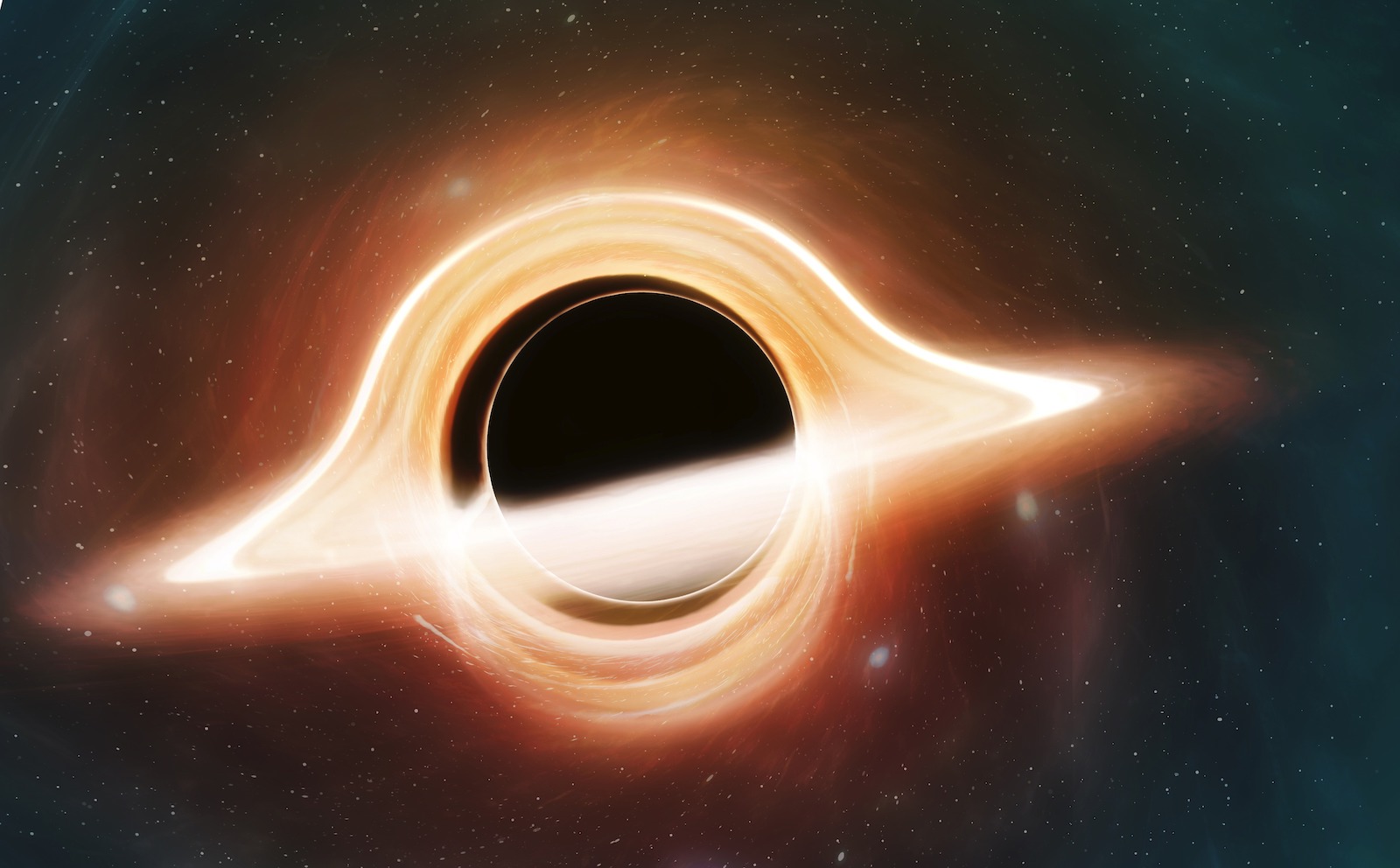Light from behind a black hole spotted for 1st time, proving Einstein right
The "luminous echoes" come from the rear part of the black hole’s corona

Astronomers have detected light coming from behind a black hole for the first time, proving Albert Einstein right, yet again.
Researchers were studying the X-rays flaring from a supermassive black hole in the center of the spiral galaxy, Zwicky 1, 800 million light-years away when they discovered the unexpected phenomenon.
Alongside the expected X-ray flashes from the front of the black hole, the scientists also detected a number of "luminous echoes" from an origin they initially couldn’t place.
Related: 10 huge black hole findings
Stranger still, the out-of-place light bursts were smaller, arrived later and had different colors from the flares seen coming from the front of the black hole.
The researchers soon realized that the echoes were arriving from behind the supermassive black hole, which, true to Einstein’s theory of general relativity, was warping space-time — enabling the light to travel around the black hole.
"Any light that goes into that black hole doesn’t come out, so we shouldn’t be able to see anything that’s behind the black hole," Dan Wilkins, a research scientist at the Kavli Institute for Particle Astrophysics and Cosmology at Stanford University, said in a statement. "The reason we can see that is because that black hole is warping space, bending light and twisting magnetic fields around itself."
Sign up for the Live Science daily newsletter now
Get the world’s most fascinating discoveries delivered straight to your inbox.
Einstein’s theory of general relativity describes how massive objects can warp the fabric of the universe, called space-time. Gravity, Einstein discovered, isn’t produced by an unseen force, but is simply our experience of space-time curving and distorting in the presence of matter and energy.
This curved space, in turn, sets the rules for how energy and matter move. Even though light travels in a straight line, light travelling through a highly curved region of space-time, like the space around a black hole, will also travel in a curve — in this instance from its back to its front.
This isn’t the first time that astronomers have spotted a black hole distorting light, called gravitational lensing, but it is the first time that they've seen light echoes from the area behind the black hole.
The astronomers didn't originally intend to confirm Einstein’s theory, formulated more than 100 years ago in 1915. Instead, they hoped to use the European Space Agency's XMM-Newton and NASA's NuSTAR space telescopes to peer at the light emitted from the cloud of super-hot particles that forms just outside of the black hole’s point of no return, or event horizon.
The super-hot cloud, or corona, wraps around the black hole and gets heated up as it falls in. Temperatures in the corona can reach millions of degrees, according to the researchers, turning the cloud of particles into a magnetized plasma as electrons are ripped from atoms. The spinning of the black hole causes the combined magnetic field of the coronal plasma to arc high above the black hole and eventually snap, releasing X-rays from the corona as a result.
"This magnetic field getting tied up and then snapping close to the black hole heats everything around it and produces these high energy electrons that then go on to produce the X-rays," Wilkins said.
Now that the researchers have made this observation, their next steps will be to study in more detail how light bends around black holes and investigate the ways black hole coronas create such bright X-ray flashes.
The researchers published their findings July 28 in the journal Nature.
Originally published on Live Science.

Ben Turner is a U.K. based staff writer at Live Science. He covers physics and astronomy, among other topics like tech and climate change. He graduated from University College London with a degree in particle physics before training as a journalist. When he's not writing, Ben enjoys reading literature, playing the guitar and embarrassing himself with chess.









